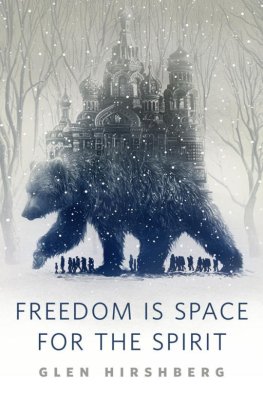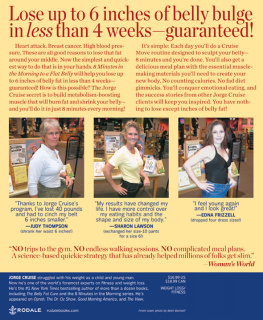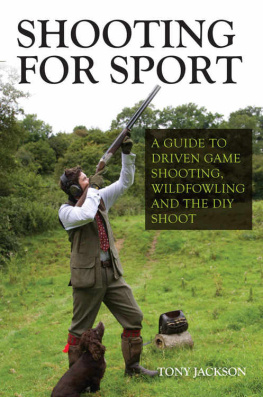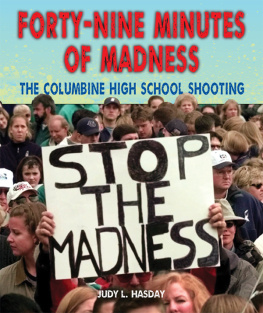Jay Hirshberg - Champion Shooting: Guaranteed Results in 15 Minutes A Day
Here you can read online Jay Hirshberg - Champion Shooting: Guaranteed Results in 15 Minutes A Day full text of the book (entire story) in english for free. Download pdf and epub, get meaning, cover and reviews about this ebook. genre: Home and family. Description of the work, (preface) as well as reviews are available. Best literature library LitArk.com created for fans of good reading and offers a wide selection of genres:
Romance novel
Science fiction
Adventure
Detective
Science
History
Home and family
Prose
Art
Politics
Computer
Non-fiction
Religion
Business
Children
Humor
Choose a favorite category and find really read worthwhile books. Enjoy immersion in the world of imagination, feel the emotions of the characters or learn something new for yourself, make an fascinating discovery.

- Book:Champion Shooting: Guaranteed Results in 15 Minutes A Day
- Author:
- Genre:
- Rating:4 / 5
- Favourites:Add to favourites
- Your mark:
- 80
- 1
- 2
- 3
- 4
- 5
Champion Shooting: Guaranteed Results in 15 Minutes A Day: summary, description and annotation
We offer to read an annotation, description, summary or preface (depends on what the author of the book "Champion Shooting: Guaranteed Results in 15 Minutes A Day" wrote himself). If you haven't found the necessary information about the book — write in the comments, we will try to find it.
Jay Hirshberg: author's other books
Who wrote Champion Shooting: Guaranteed Results in 15 Minutes A Day? Find out the surname, the name of the author of the book and a list of all author's works by series.
Champion Shooting: Guaranteed Results in 15 Minutes A Day — read online for free the complete book (whole text) full work
Below is the text of the book, divided by pages. System saving the place of the last page read, allows you to conveniently read the book "Champion Shooting: Guaranteed Results in 15 Minutes A Day" online for free, without having to search again every time where you left off. Put a bookmark, and you can go to the page where you finished reading at any time.
Font size:
Interval:
Bookmark:
All rights reserved.
Copyright October 2012 -2013 by Ben Stoeger and Jay Hirshberg
This book is protected under the copyright laws of the United States of America. Any reproduction or other unauthorized use of the material or artwork herein is prohibited without the written permission of the authors.
This is a book that covers aspects of training for pistol shooting which is inherently a dangerous sport. Never try anything represented in this book without full knowledge and acceptance of the risks associated with that activity. Always follow the rules of gun safety including but not limited to:
Always treat a firearm as if it is loaded.
Always keep the firearm pointed in a safe direction.
Always keep your finger off the trigger until ready to shoot.
Always keep your firearm unloaded until it is ready for use.
Always be sure of your target and what is beyond it.
An accident that takes place is solely the responsibility of the shooter. This book covers exercises in live-fire and dry-fire settings -- never have ammunition anywhere near your dry-fire area and always be sure that your gun is unloaded when performing drills in dry-fire.
The reader of this book acknowledges and accepts all risks associated with their live-fire and dry-fire activities and hereby accepts all the risks associated with any shooting and related activities.
Table of Contents
Purpose of this Book
Ben and Jay Background
The Dry-Fire Problem
How to Use this Book
Equipment Issues
The Dry-fire/Live-fire Loop
Honesty and Realism in Dry-fire
Where are the Tracking Sheets?
The See What You Need to See Fallacy
The Make Every Repetition Perfect Fallacy
Course Design
The Drills
White Wall Marksmanship Fundamentals
Single Target Gun Handling
Far Target Gun Handling
Close Target Gun Handling
Reload Challenge
El Presidente
Wide Transitions
Close Far Close
Far Close Far
Far Far 90 Twist Close
Close 90 Close
Close 90 Close 90 Close
Close 90 Partial 90 Close
Partial 90 Close 90 Close
Partial 90 Partial 90 Partial
Distant Target Challenge
Distant Target SHO/WHO Challenge
Plate Rack
Paper Steel Paper
SOTM Easy
SOTM Hard
Easy Setup
Hard Setup
Easy Leave
Hard Leave
Easy Move
Hard Move
Moving Reloads
Steel Steel Move Paper
Paper Move Steel
Back and Forth
Advanced Handling
Oddball Starts
Prone
Port to Port
Barricade
Barricade Setups
Steel Work
Mover Sequence
Doorway
Table
Chair
Pick Up the Can
Kick the Can
This is Volume 2 in the Champion Shooting book series. The first volume Champion Shooting, a Proven Process For Success at Any Level, sets you on the path to improvement with the greatest impact for the effort you put in. It provides the foundation for a practice regiment and discusses all facets of training. One of the key aspects of practice discussed in the first volume is the notion of dry-fire. So we took this concept and elaborated on it with a focus on how to fit this method of practice into your overall regimen.
Whether its USPSA, IPSC, IDPA or Steel Challenge practical shooters always seem to be talking about dry-fire. It seems to be generally accepted that dry-fire is an important means of improving your shooting technique. There are many schools of thought pertaining to the use of dry-fire techniques as a means of improvement. Just about everyone thinks it is important, but most people do not seem to implement it into their regular training regimen. Many people use dry-fire extensively for a short time and then stop doing it. We are not quite sure why people stop training through dry-fire although there are many thoughts around this it can be boring, mundane, not realistic, etc.
This book will help you gain an understanding of the following myths concerning its use as a training technique:
You have heard that its boring? This book will disprove that.
You will not learn anything by using it as a practice method, and you wont get any faster even if you do? The drills within this book will disprove that.
You do not know what to practice? This is a book filled with practice concepts.
This is the dry-fire book that we wish we had as a reference guide when we first started shooting. It owes a lot to the work of Brian Enos, Steve Anderson, Saul Kirsch, Mike Seeklander, Rob Leatham, and Matthew Mink (all top shooters in todays parlance) and others as well. This book is not designed to replace the materials that other people have produced; it is instead our take on all of that information along with lessons that we have learned along the way. We have and continue to use the methods contained in this training book and have seen our shooting techniques improve both quickly and measurably along the way and so will you!
The 15-Minute Dry-fire Plan first appeared on Bens website in 2009. Then it was designed as a single, 15-minute Dry-fire workout that if followed, would provide people with great results. It is important to note that the contents of this book do not show resemblance to that earlier work except for the name and our learning that this is a simple and easy-to-implement concept. This is the most extensive dry-fire training book yet produced and we are sure that you will find all of the material here of interest and use to you. So throw this book in your range bag and lets get started.
Ben started shooting in 2005 in IDPA and USPSA. He wanted to do well, bought a timer and started dry-firing. He shot at his first IDPA match in March of that year which was a classification match and became IDPA Master at his first competitive event. He shot a few more club matches and continued dry-fire training. He attended the IDPA State Championship in his home state that year and subsequently started USPSA shooting.
Ben shot a classification match and a number of other club matches and achieved Grand Master ranking as his initial classification. Even though he had been shooting competitively for just a few months and had rough technique he was able to do well on the straight-forward, stand-and-shoot tests. All of that initial success was due to using a decreasing PAR time training method where you set-up the targets and go through the motions of shooting them. You learn to see what you need to see in order to hit those targets followed by dry-firing as fast as possible at those targets.
After a few years of training and experimentation in order to refine his dry-fire training he began winning Area Championships. He continued using the same training method to develop successively complex drills. But Ben was in a rut and not seeing performance gains from this method of practicing. This is when he realized that chasing PAR times was a fallacy in that top technique is what led to demonstrable improvements in time. Here he focused on a clear sight picture for example. Instead of seeing what he needed to see he started to see all that he could. The PAR time was only a guideline and was only designed to keep him honest. It was only at this point that he went from being competitive at an Area level to competitive at a National level. This is the method for success that is covered in this book.
Jay is newer to the sport having come up the ranks in the traditional sense. He started shooting in the summer of 2009 not having held a handgun much up-to that point. No sensational story about classifying as Grand Master right-off-the-bat but he did progress quickly. During that progression Jay relied on training almost exclusively with top professional shooters like Manny Bragg and Frank Garcia. Coming at the discipline from that level taught him the fundamentals of proper shooting technique. But it did not teach him how to practice.
Font size:
Interval:
Bookmark:
Similar books «Champion Shooting: Guaranteed Results in 15 Minutes A Day»
Look at similar books to Champion Shooting: Guaranteed Results in 15 Minutes A Day. We have selected literature similar in name and meaning in the hope of providing readers with more options to find new, interesting, not yet read works.
Discussion, reviews of the book Champion Shooting: Guaranteed Results in 15 Minutes A Day and just readers' own opinions. Leave your comments, write what you think about the work, its meaning or the main characters. Specify what exactly you liked and what you didn't like, and why you think so.




